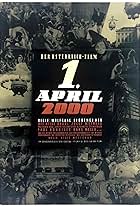Advanced search
- TITLES
- NAMES
- COLLABORATIONS
Search filters
Enter full date
to
or just enter yyyy, or yyyy-mm below
to
to
to
Exclude
Only includes titles with the selected topics
to
In minutes
to
1-50 of 60
- A huge panorama of Richard Wagner's life and work, from before the 1848 revolution, through his exile in Switzerland, his rescue by the besotted King Ludwig II of Bavaria, to the final triumph at Bayreuth. Richard Wagner's radical musical and political ideas, his German nationalism, and even his anti-Semitism are set in the context of his life and times.
- Count Wolkersheim attends the 1815 Vienna Congress to negotiate,to the Countess joy. Political concerns and music mix in a waltzing city, their apparently opposite attitudes testing their love. Will she behave or will he learn to waltz?
- Franz Schubert works as school teacher, yet his mind and soul are in music. When he is engaged as a pianist for an aristocratic soirée he doesn't suspect how this will change his life forever and even determine his unfinished symphony.
- A young Japanese geisha clings to the belief that her arrangement with a visiting American naval officer is a loving and permanent marriage.
- A musician is offered a job in Vienna as stage director, but his disagreements with Maria, the aristocratic opera manager, end in abrupt firing in spite of a mutual attraction. He is quickly engaged by another theatre and will become famous for his lavish stage productions and fine acting of operettas, which start their golden age with Suppé and Strauss.
- It is the year 2000 and the World Global Union is in charge, although other countries are allowed to elect their own government leaders, as long as they support the Union. When Austria's newly-elected president, makes his inauguration speech, he declares Austrian independence and issues an edict ending Austria's financial support for the Global Union. The Global Union President arrives in a flying-saucer with her retinue of world-soldiers, equipped with death-ray guns, to put an end to the rebellion. The president and the country are put on trial. The Austrian president recounts the country's' long battle for peace, and shows how Austria stopped the invasion of the Turks, and gave the world the operetta and the waltz. He organizes a mass parade with flora floats and a brass band playing the Austrian Freedom Song in order to appeal to the court's impartiality. A 1943 document signed by Roosevelt, Churchill and Stalin and assuring Austria of independence is presented.
- "Eroica" is an Austrian film from 1949 that illustrates the life and work of composer Ludwig von Beethoven.
- This program is a 125 Minute documentary in four chapters that celebrated the 200th birthday of the famous classical composer Ludwig van Beethoven. Presented by the famous composer and conductor Leonard Bernstein, Bernstein analyzes the life of Beethoven, and illustrates his analysis with excerpts from three of Beethoven's works. It was originally televised by the CBS Television Network. Chapter one is the opening, where Bernstein introduces us to Beethoven, the person, and explains - through Beethoven's music - his personality, and the effect of his personality on his music and the effect of his music on his public persona. The music that is most heard during this chapter is excerpts from Beethoven's Piano Concerto No. 1 in C Major. Chapter two is a presentation on Beethoven's single opera: Fidelio. In it, you are a fly on the wall as Bernstein and the Company rehearse the opera, and then you experience scenes from the actual performance which is analyzed scene by scene by Bernstein. Chapter three is a presentation on Beethoven's Ninth Symphony in D Minor. Bernstein starts off by discussing the work itself, its impact on us all, and how Beethoven is portrayed in the work. The listening emphasis for this chapter is the fourth movement known as "Ode To Joy". Incidentally, one of the four soloists in this work is a young Placido Domingo.
- Wiener Philharmoniker and Wiener Philharmonia Chor Conducted by Karl Böhm Directed by Vaclav Kaslik
- Summer Night Concert Schönbrunn is an outdoor concert in Vienna held by the Vienna Philharmonic. The venue for the concert is the Schönbrunn Palace. It has telecast on PBS in the United States as part of the series Great Performances.
- "150 Jahre Wiener Weltausstellung / 150 Years Expo Vienna" is a cinematic journey back in time to the year 1873, when Vienna hosted the fifth and then largest World's Fair at the Prater grounds, transforming from an imperial residential city into a cosmopolitan metropolis. Never before or since has the metropolis on the Danube changed so much in such a short time. The whole world once met here: from the Japanese Tenno to the Shah of Persia to the King of Hawaii. Around 35 nations and 53,000 exhibitors showed their achievements on an area of around 2.3 million square meters. With this gigantic show, Vienna succeeded in asserting itself as the site of many international institutions as well as a meeting place.


















